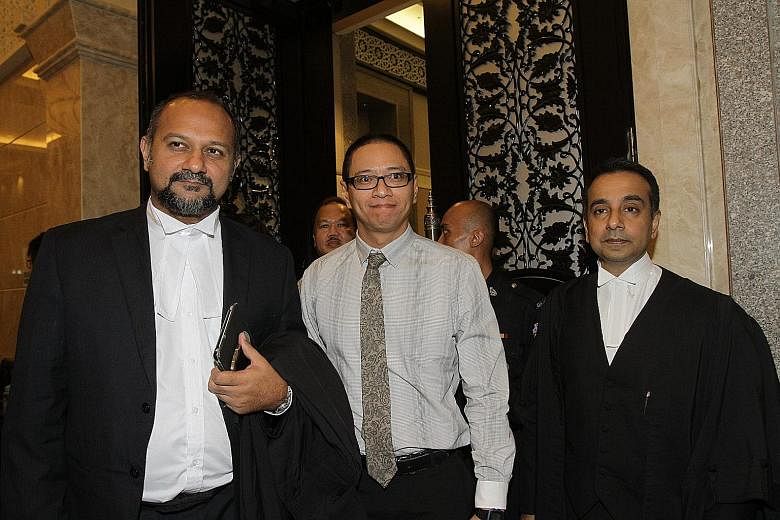Malaysia's highest court yesterday made a landmark decision that the controversial Sedition Act is constitutional and enforceable despite being a pre-independence law, raising fears among its critics that the ruling will allow the government freer rein to curtail freedom of speech.
The Federal Court ruling is especially worrying for the opposition, political activists, and even academicians, as it comes at a time when the beleaguered administration of Prime Minister Najib Razak has become less tolerant of criticism.
A five-man panel of judges delivered the verdict yesterday in a case involving law professor Azmi Sharom, who was charged with sedition after claiming that a transition of political power in Perak in 2009, which involved the state's sultan, had been done through a secret meeting and was legally wrong.
He was charged with sedition. Azmi challenged the court on the validity of the Act itself, arguing that only Parliament had the sole authority to make laws restricting freedom of speech and expression and not any other authorities.
Since the Sedition Act was pre-independence, and hence a pre-parliament law, he asserted that the law was invalid.
But the panel of judges, led by Chief Justice Tun Arifin Zakaria, disagreed, as they felt the Act should continue to be valid and enforceable post-Independence as provided for in Article 162 of the Federal Constitution.
That article stipulates that existing laws, until repealed by the government, shall continue in force on and after independence.
The Sedition Act allows the government to prosecute persons who utter any "seditious" words, which could include questioning privileges established or protected by the federal Constitution; inciting disaffection against the country's rulers or the government, or promoting ill will and hostility among Malaysians.
Following the verdict, Azmi, along with dozens of opposition politicians and activists, will have to face up to their sedition charges which had been stayed pending his challenge on the constitutionality of the Act.
Although disappointed with the ruling, the prominent academician expressed hopes that the ruling will not result in people fearing to voice their disagreement against bad laws.
"I hope it does not affect commentary in this country, I hope people… continue to express their point of view because we must not allow bad laws to frighten us, we must continue to struggle, we must continue to try and make this country a true democracy," he told reporters outside the courthouse.
Political analysts say that in the past two years alone, the Act has been selectively applied and used to clamp down on those who say anything afoul of the government while Umno-friendly personalities who uttered inflammatory statements had escaped the clutches of the law.
Human Rights Watch Asia Division deputy director Phil Robertson said that by allowing the Sedition Act to remain on the law books, the government and judiciary were defying international human rights law that protects freedom of speech.
Political analyst Khoo Kay Peng told The Straits Times: "This ruling is going to put the country's reform credentials at stake. It will allow the government to continue using this Act as a tool to limit freedom of speech among the government's political opponents and there has been no response from the government to guarantee otherwise."
Pollster Ibrahim Suffian from Merdeka Centre said the ruling maintained a status quo, in that certain real limits on expression of speech remained intact, and activists will continue to operate in an environment where they can be prosecuted for their words.

